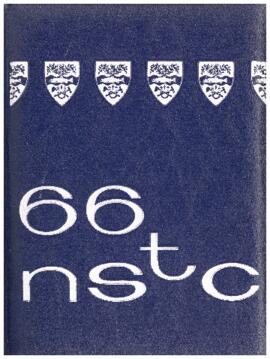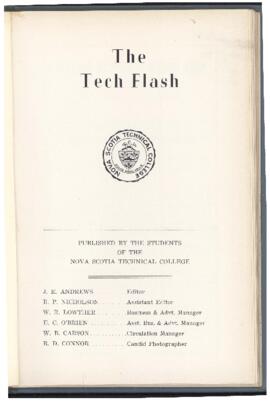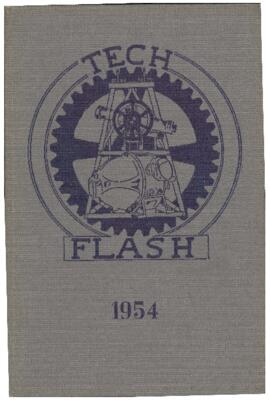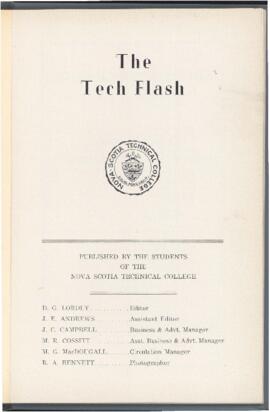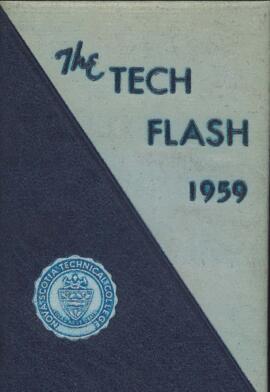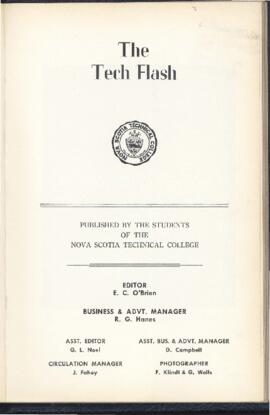Title and statement of responsibility area
Title proper
General material designation
- Textual record
Parallel title
Other title information
Title statements of responsibility
Title notes
Level of description
Repository
Reference code
Edition area
Edition statement
Edition statement of responsibility
Class of material specific details area
Statement of scale (cartographic)
Statement of projection (cartographic)
Statement of coordinates (cartographic)
Statement of scale (architectural)
Issuing jurisdiction and denomination (philatelic)
Dates of creation area
Date(s)
Physical description area
Physical description
Publisher's series area
Title proper of publisher's series
Parallel titles of publisher's series
Other title information of publisher's series
Statement of responsibility relating to publisher's series
Numbering within publisher's series
Note on publisher's series
Archival description area
Name of creator
Administrative history
The Technical University of Nova Scotia was founded as the Nova Scotia Technical College (NSTC) on 25 April 1907. In 1978 it was re-named the Technical University of Nova Scotia (TUNS), and in 1997 it amalgamated with Dalhousie University, temporarily becoming DalTech, a separate college within Dalhousie.
The school was established through the Technical Education Act to fill the province's need for a degree-granting technical college to offer the final two years of engineering study; Acadia, Dalhousie, the University of King's College and Mount Alison already had fledgling programs offering two-year diplomas. Over time, other Atlantic universities joined these associate institutions. The provincial government funded NSTC's operation until 1963, when the Board of Governors became responsible for the college's finances.
Under the direction of Frederick Henry Sexton, the first principal, classes began in September 1909 in a new building on former military land on Spring Garden Road obtained from the federal government in exchange for the inclusion of military instruction in the college's curriculum. Both faculty and students were directly involved in both world wars, and compulsory military training was discontinued in 1945.
NSTC initially offered courses in civil, electrical, mechanical and mining engineering. In 1947, coinciding with F.H. Sexton's retirement, the Technical College Act transferred the responsibility of technical education from the college's principal to the provincial education department. Chemical and metallurgical engineering were added to the curriculum in 1947, geological engineering in 1964, and industrial engineering in 1965. Atlantic Canada's first School of Architecture was established in 1961 and the School of Computer Science in 1982. MEng degrees began being offered in the 1950s and a PhD programme was established in 1962.
In 1978 the college's name changed to the Technical University of Nova Scotia, after 40 years of lobbying to circumvent its confusion with the Nova Scotia Institute of Technology and the Nova Scotia Teachers’ College and to end the institution’s identity as a "college." In 1986 an Advisory Board was put in place to ensure liaison between what was now the Technical University of Nova Scotia and its associate universities. TUNS's mission was articulated as contributing to the development of Nova Scotia though high quality education, research, and community and industry collaboration in architecture, computer science and engineering.
Provincial pressure to amalgamate TUNS and Dalhousie brought about the Dalhousie-Technical University Amalgamation Act in April 1997. TUNS became DalTech (Dalhousie Polytechnic of Nova Scotia) and existed as a constituent college within Dalhousie until early 2000. DalTech offered courses in the Faculties of Engineering, Computer Science and Architecture and the associated buildings were re-named the Sexton Campus in honour of NSAC's first principal. The campus had expanded over the years from the original building on Spring Garden Road to encompass much of the large block bounded by Spring Garden Road, Barrington, Morris and Queen streets.
Custodial history
Scope and content
Notes area
Physical condition
Immediate source of acquisition
Arrangement
Language of material
- English


